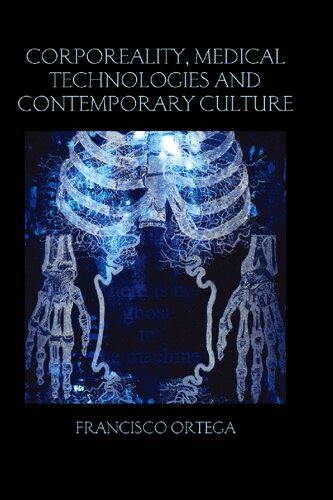

Most ebook files are in PDF format, so you can easily read them using various software such as Foxit Reader or directly on the Google Chrome browser.
Some ebook files are released by publishers in other formats such as .awz, .mobi, .epub, .fb2, etc. You may need to install specific software to read these formats on mobile/PC, such as Calibre.
Please read the tutorial at this link. https://ebooknice.com/page/post?id=faq
We offer FREE conversion to the popular formats you request; however, this may take some time. Therefore, right after payment, please email us, and we will try to provide the service as quickly as possible.
For some exceptional file formats or broken links (if any), please refrain from opening any disputes. Instead, email us first, and we will try to assist within a maximum of 6 hours.
EbookNice Team

Status:
Available4.8
33 reviewsThis book examines the confusions and contradictions that manifest in prevalent attitudes towards the body, as well as in related bodily practices.
The body is simultaneously our reference for the certainties of nature and the locus of a desire for transformation and reinvention. The body is at the same time worshipped and despised; an object of desire and of design. Francisco Ortega analyses how the body has become both a screen for the projection of our ideas and imaginings about ourselves and conversely an object of suspicion, anxiety, and discomfort. Addressing practices of corporeal ascesis (such as bodybuilding and dietetics), medical technologies, and radical anatomical modifications, Ortega documents the ambiguous legacy of a western theoretical tradition that has always despised the body.
Utilising a theoretical framework that is mainly informed by the phenomenology of the body, feminist theory, disability studies and the thought of Michel Foucault, Corporeality, Medical Technologies and Contemporary Culture address several ethical and psychological issues associated with the experience and perception of the body in our cultural landscape. Drawing on these diverse areas of philosophical and analytical work, this book will interest those researching Law, Medicine, and Sociology.